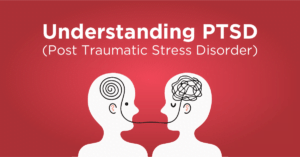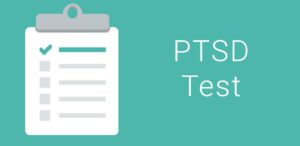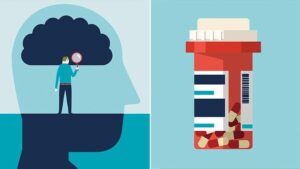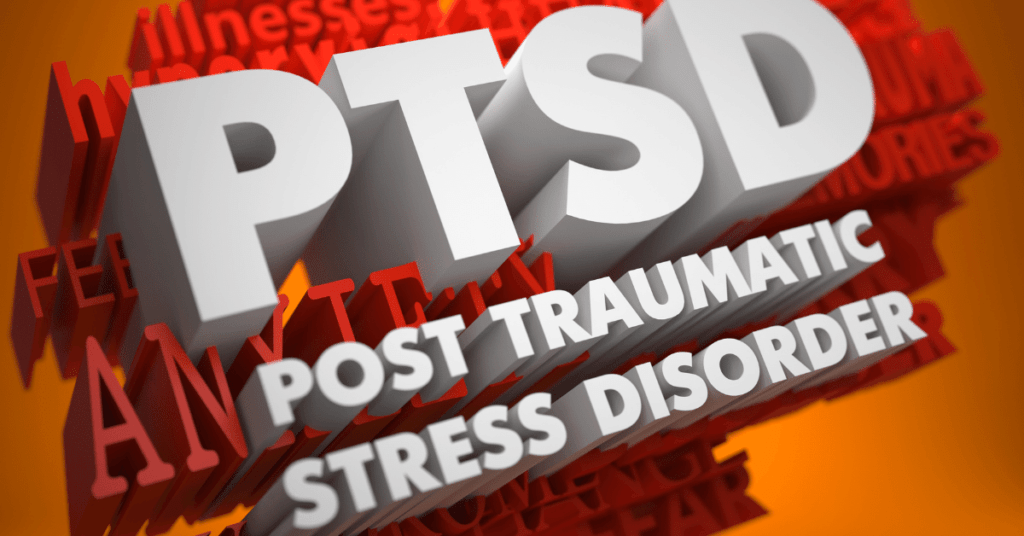PTSD Test
Contents
What Is PTSD (Post-Traumatic Stress Disorder)?

Post-traumatic stress disorder (PTSD) is a type of chronic stress disorder that can be permanent if not treated effectively. One way to better diagnose PTSD is to define it as a biological syndrome with clear physical manifestations. There has been a dramatic increase in knowledge about the neurobiology of PTSD, which includes anxiety and fear-based memories. Through various studies, researchers have identified many brain regions and physiological processes that are affected by PTSD. These findings have enabled scientists to identify the pathology of PTSD and in turn, provide more effective treatments.
The effects of the traumatic events can vary from person to person. Some people may experience only one episode of trauma while others have multiple traumas throughout their lives. A survey conducted for the National Center for PTSD claims that 60% of adults who were exposed to a traumatic event will experience PTSD. However, the likelihood of developing the disorder depends on what kind of traumatic event they experienced and how long it lasted. For example, if an individual was in a car accident that resulted in their friend’s death, there is a higher chance (than say if it happened to them) that they will develop PTSD.
Symptoms Of PTSD

The primary symptom of PTSD is re-experiencing the trauma through flashbacks, nightmares, or other memories. Individuals with PTSD may also experience hyperarousal (elevated heart rate, difficulty sleeping) and avoidance behaviors (feeling detached, refusing to talk about the traumatic event). According to the DSM-5, symptoms for PTSD include distressing memories of the event, bad dreams and/or frightening thoughts, flashbacks during which a person feels or acts as if it were happening all over again, avoidance of places associated with the trauma, negative emotions, lack of interest in things that formerly brought them joy, and a sense of a foreshortened future. A person must experience at least three of these symptoms for a duration of more than a month in order to be diagnosed with PTSD.
PTSD is a very common condition that can affect people who have been exposed to trauma. They may experience distressing memories, bad dreams, and frightening thoughts during the traumatic event or afterward. PTSD has three main symptoms which are prolonged anxiety after exposure to an intense fear-inducing stimulus (e.g., military combat), numbing of general responsiveness including social withdrawal and self-isolation, and persistent avoidance behavior related to reminders of the event.
In addition, people who have been exposed to trauma may also present other comorbid disorders such as depression, substance abuse, or suicidal tendencies.
Who May Develop PTSD?
Post-traumatic stress disorder (PTSD) is a condition that develops in some people who have experienced or witnessed a shocking, scary, or dangerous event. PTSD affects nearly 8 million American adults every year who have survived a wide range of traumatic events, including physical or sexual assault, combat exposure, car accidents, train wrecks, fires, floods, and bombings.
The effects of a traumatic event can vary from person to person. Some people may experience only one episode of trauma while others have multiple traumas throughout their lives. A survey conducted for the National Center for PTSD claims that 60% of adults who were exposed to a traumatic event will experience PTSD. However, the likelihood of developing the disorder depends on what kind of traumatic event they experienced and how long it lasted. For example, if an individual was in a car accident that resulted in their friend’s death, there is a higher chance (than say if it happened to them) that they will develop PTSD. And since PTSD can impact anyone regardless of age or gender or race or sexual orientation, there are different types of treatment options for this condition that you should explore.
PTSD Test

If you’ve been through a traumatic event and think you may have PTSD. There are various ways to get tested. One way is to visit your primary care physician who can refer you to a psychiatrist if needed. Another option is self-help where you can read up on the condition or find pamphlets at a local hospital that provide information on how to recognize PTSD in yourself or others. It is important to remember that PTSD is not a short-lived condition. Those who suffer from the disorder may wake up with nightmares, experience insomnia or flashbacks, and/or feel depressed or even suicidal.
Sample Questions Of PTSD Test
1. Have you been exposed to actual or threatened death, significant harm, or sexual assault either directly, as a witness, in learning it occurred to a close friend or family member, or in your line of work?
- No
- Yes
2. Do you have distressing memories of the event, flashbacks, or nightmares?
- No
- Yes
3. Do you try to avoid anything that may remind you of the event?
- No
- Yes
4. Have there been times when you felt emotionally numb, unable to trust others; or even that your life is empty and meaningless?
- No
- Yes
5. Do you experience feelings of guilt, like you could have done something to prevent the event?
- No
- Yes
6. Have you had thoughts or feelings that make you uncomfortable around others who are the same gender as the perpetrator(s)?
- No
- Yes
7. Do you experience changes in sleeping patterns?
- No
- Yes
8. Do you experience feelings of anxiety or fear that are hard to control?
- No
- Yes
9. Have there been times when you thought of harming yourself or someone else?
- No
- Yes
10. Is your tolerance for everyday experiences, feeling more irritable and overwhelmed, less than it was before the trauma?
- No
- Yes
11. Do you have a feeling of detachment from other people or a sense that you don’t belong?
- No
- Yes
Answers Of PTSD Test
Questions 1-5: Have you been exposed (yes/no)
Questions 6-12: Do these behaviors match what is happening in your heart and mind?

No – Questions 1-4
Yes – Questions 6-12
This post-traumatic stress disorder test was developed by the US Department of Veteran Affairs and may not reflect the latest diagnostic criteria of the DSM-5. It does not include possible causes or treatments for post-traumatic stress disorder. This sample PTSD test is only meant to give a general idea of what a post-traumatic stress disorder test consists of. If you have further questions, please speak with our doctor.
Overall, PTSD is a very serious condition that can be debilitating if not treated properly. The more we know about this mental disorder the better equipped we are to treat it and offer help to those who need it. Therefore, it is important to diagnose this condition, and taking a PTSD test may help you. PTSD is not a short-lived condition and can worsen over time if left untreated. The earlier someone seeks to help the better chance they have at recovery.
Treatment For PTSD

A common treatment for PTSD is medication. This can be given in several different ways, but mostly includes prescriptions that will help with symptoms related to anxiety. Pharmacological agents used in the treatment of PTSD include serotonergic antidepressant medications (SSRIs), serotonin-norepinephrine reuptake inhibitors (SNRIs), and the novel antidepressant/antianxiety agent, buspirone. Additionally, antidepressants can be prescribed in conjunction with supportive psychotherapy for PTSD-related insomnia.
As mentioned previously, therapy is an effective treatment for PTSD. Although it may seem like a daunting idea to many individuals suffering from the disorder, seeking out therapy can help them cope with PTSD symptoms. Seeking therapy also allows people to talk through what they are experiencing, which then helps them process the information and manage their emotions. Treating the disorder itself is beneficial for one’s mental health because it allows people to come to terms with their past without fear of being overwhelmed by memories of the traumatic event. Treatment for post-traumatic stress disorder includes medication such as antidepressants. Therapy sessions with supportive psychotherapy, or both depending on the severity of symptoms.
Finding the right treatment can be challenging. For example, there are different types of psychotherapy that have been proven to work for PTSD sufferers. Unfortunately, these therapies are only beneficial if they’re provided by a qualified professional who can administer them properly. It is important that you find someone experienced in treating PTSD so that your condition doesn’t worsen or have a negative impact on your life.
Conclusion
To conclude, PTSD isn’t as rare as some would think among those exposed to traumatic events. It can be treated by both drug therapy and therapeutic sessions aimed at processing the trauma. If left untreated, PTSD can lead people to behave in an unhealthy manner which then causes more negative consequences. Furthermore, it is very important for people with PTSD to develop a support system. Having a strong network of family or friends can be beneficial because they can provide the person with some sense of normalcy and help them cope on a day-to-day basis. PTSD test can help you diagnose the condition and get the treatment as soon as possible.
For more information, please contact MantraCare. PTSD or Post-Traumatic Stress Disorder is a mental health condition that affects people who have experienced or witnessed a traumatic event. If you have any queries regarding Online PTSD Counseling experienced therapists at MantraCare can help: Book a trial PTSD therapy session


